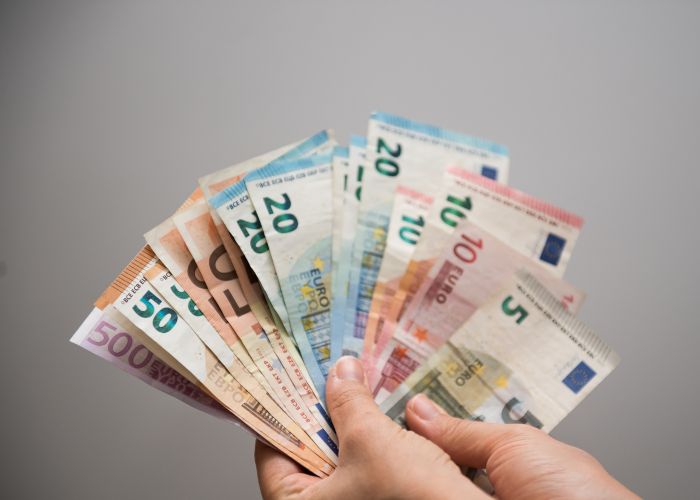If you plan to pay for a product or service in cash, think again. In order to prevent fraud, cash payments above €1,000 are prohibited in Spain. These are the consequences you could face, but also a loophole.
In July 2021, the Spanish government decided that cash payments in shops, restaurants, etc. are allowed up to €1,000. In principle, it applies to all payments involving at least one professional. This was then enshrined in law.
Also read: The right to make cash payments
This also means that owners of shops and catering establishments may refuse cash amounts above this amount. However, self-employed persons or companies themselves may also pay each other a maximum of €1,000 in cash for services rendered to each other. The same rules apply to, for example, bearer cheques.
Are there loopholes in Spanish law?
Unfortunately, for people trying to be smart by paying in several parts, this is not a foolproof solution. The payment, whether or not in parts, applies to a whole service or a whole product. Even if the partial payments together exceed €1,000, this is also prohibited by law.
One exception is made within this law, namely when the payer is not a professional and his/her residence is outside Spain. In many cases, these are tourists who are allowed a cash payment of no less than €10,000.
Consequences if Spanish companies do not comply with the law
But what happens if self-employed persons and companies in Spain do not comply with these rules? If healthcare professionals accept or make cash payments above €1,000, they run the risk of a fine of 25% of the total amount paid. The Banco de España points out that the responsibility for this payment lies with both the person making the payment and the party receiving the payment. Both parties are therefore responsible for half of the fine.
However, there are some ways to get out of such a heavy fine, partially or not. The fine can be reduced by several tens of percent if, for example, the parties pay the tax authorities quickly. It also regularly happens that if one of the parties reports the transaction to the Spanish tax authorities within three months, the fine is completely waived. In that case, the mutual VAT must still be paid.
Also read: Avoid fines for making cash payments
European Central Bank does not support limit reduction in Spain
As mentioned, this law has only been in force since July 2021. The Spanish government decided to lower the then limit from €2,500 to €1,000 in order to combat fraud with ‘payments without invoice’, but also to put an end to paying with notes and coins. The European Central Bank then announced that it did not support this amendment because it restricts the self-employed and companies in Spain from exercising their profession and partly restricts consumer freedom.


